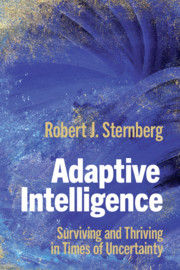This target article considers the relation of fluid cognitive functioning to general intelligence. A neurobiological model differentiating working memory/executive function cognitive processes of the prefrontal cortex from aspects of psychometrically defined general intelligence is presented. Work examining the rise in mean intelligence-test performance between normative cohorts, the neuropsychology and neuroscience of cognitive function in typically and atypically developing human populations, and stress, brain development, and corticolimbic connectivity in human and nonhuman animal models is reviewed and found to provide evidence of mechanisms through which early experience affects the development of an aspect of cognition closely related to, but distinct from, general intelligence. Particular emphasis is placed on the role of emotion in fluid cognition and on research indicating fluid cognitive deficits associated with early hippocampal pathology and with dysregulation of the hypothalamic-pituitary-adrenal axis stress-response system. Findings are seen to be consistent with the idea of an independent fluid cognitive construct and to assist with the interpretation of findings from the study of early compensatory education for children facing psychosocial adversity and from behavior genetic research on intelligence. It is concluded that ongoing development of neurobiologically grounded measures of fluid cognitive skills appropriate for young children will play a key role in understanding early mental development and the adaptive success to which it is related, particularly for young children facing social and economic disadvantage. Specifically, in the evaluation of the efficacy of compensatory education efforts such as Head Start and the readiness for school of children from diverse backgrounds, it is important to distinguish fluid cognition from psychometrically defined general intelligence.


